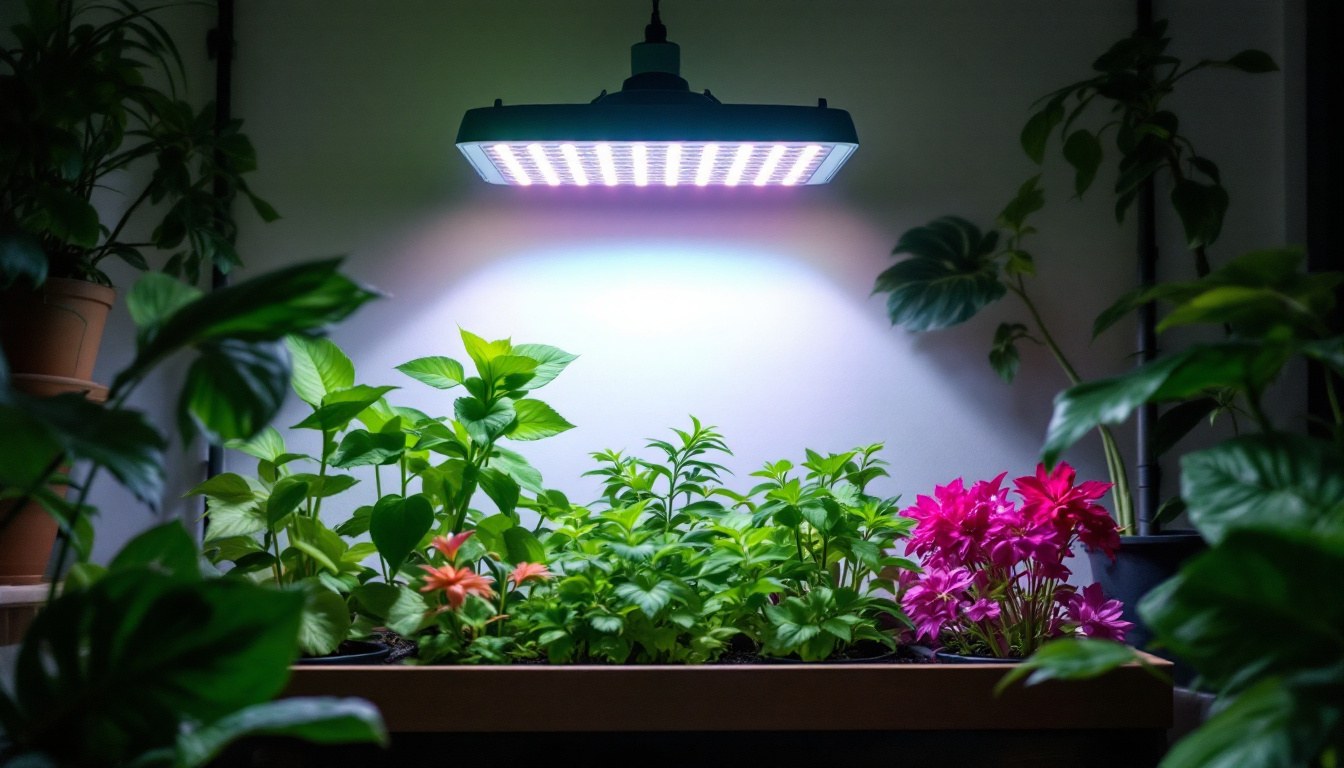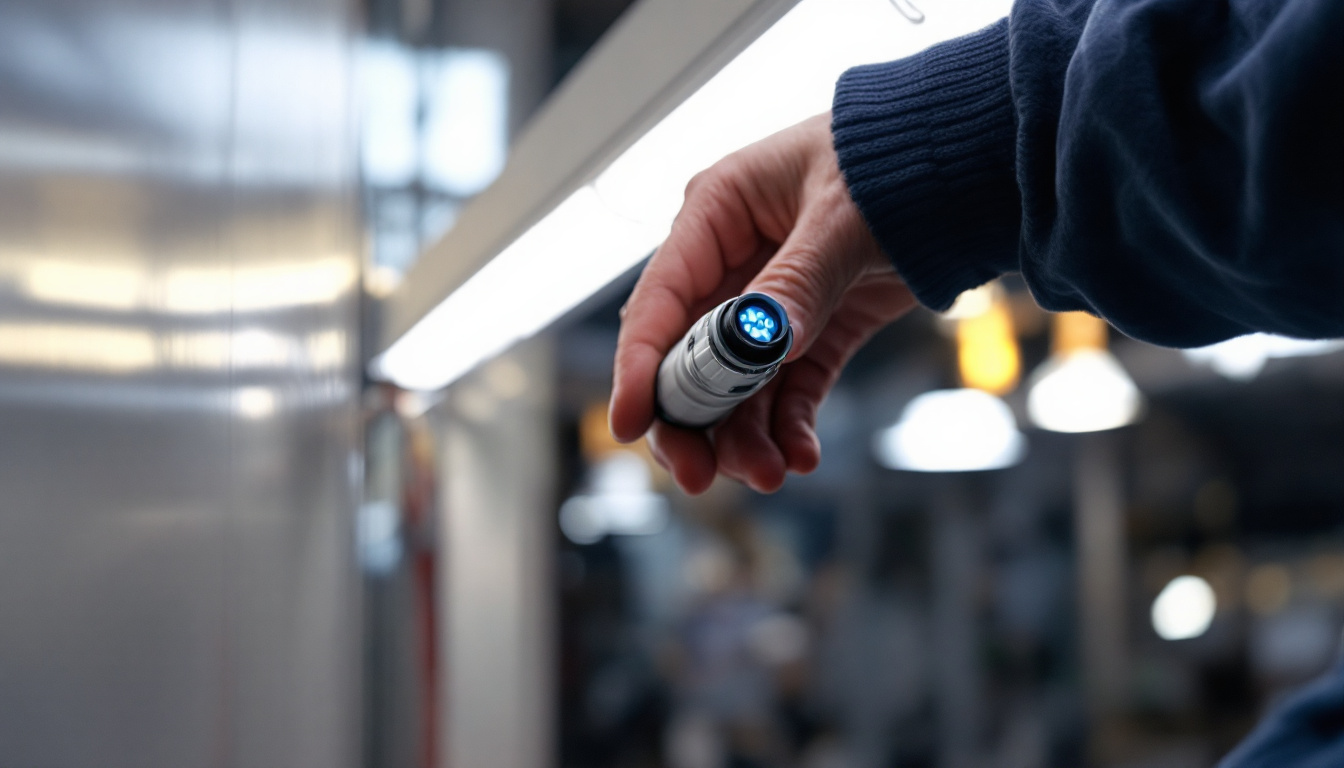
Lighting Technologies: Boosting Efficiency for Lighting Contractors
In the ever-evolving world of construction and design, lighting contractors play a crucial role in ensuring that spaces are not only functional but also aesthetically pleasing. With advancements in lighting technologies, contractors now have access to a plethora of options that enhance efficiency, reduce energy consumption, and improve overall project outcomes. This article explores the latest lighting technologies that can significantly boost efficiency for lighting contractors.
The push for energy efficiency has transformed the landscape of lighting design and installation. As regulations become stricter and environmental concerns grow, lighting contractors must adapt to new technologies that promote sustainability while meeting client expectations.
Energy-efficient lighting not only reduces electricity bills but also minimizes the carbon footprint of buildings. By incorporating energy-efficient solutions, contractors can offer clients long-term savings and contribute to a greener planet. Technologies such as LED lighting have become the cornerstone of energy efficiency, allowing for significant reductions in energy consumption compared to traditional incandescent and fluorescent lighting. Furthermore, the longevity of LED fixtures means less frequent replacements, which not only saves money but also reduces waste and the environmental impact associated with manufacturing and disposing of lighting products.
In addition to LEDs, smart lighting systems are gaining traction in both residential and commercial sectors. These systems can be programmed to adjust brightness based on occupancy or natural light levels, further enhancing energy savings. By integrating sensors and automation, contractors can provide clients with solutions that not only save energy but also improve the overall user experience, making spaces more adaptable and responsive to their needs.
Staying compliant with local and national regulations is essential for lighting contractors. Many regions have implemented energy codes that mandate the use of energy-efficient lighting systems. Understanding these regulations helps contractors to avoid penalties and ensures that projects meet the necessary standards for safety and efficiency. Additionally, compliance with these standards can enhance a contractor’s reputation, as clients increasingly seek out professionals who prioritize sustainability and adhere to best practices.
Moreover, the landscape of energy regulations is constantly evolving, with new initiatives aimed at reducing energy consumption and promoting renewable energy sources. Contractors must stay informed about upcoming changes in legislation, such as incentives for using energy-efficient technologies or penalties for non-compliance. By actively engaging with industry associations and participating in training programs, contractors can better navigate these complexities and position themselves as leaders in the field of energy-efficient lighting solutions.
The lighting industry has witnessed remarkable innovations that have redefined how spaces are illuminated. From smart lighting systems to advanced control technologies, these innovations empower lighting contractors to deliver superior results.
Smart lighting systems integrate advanced technology with traditional lighting solutions, allowing for greater control and customization. These systems can be programmed to adjust brightness, color temperature, and even scheduling based on user preferences or occupancy levels. For contractors, this means offering clients a product that enhances usability and comfort while also improving energy efficiency. Moreover, the integration of smart home ecosystems allows users to control their lighting remotely via smartphones or voice-activated devices, providing an unprecedented level of convenience. As more homeowners and businesses adopt smart technology, contractors who are well-versed in these systems can differentiate themselves in a competitive market.
LEDs have revolutionized the lighting industry, providing longer lifespans, lower energy consumption, and reduced heat output compared to conventional lighting options. The versatility of LED technology allows for various applications, from residential to commercial and industrial settings. Contractors can leverage this technology to create tailored solutions that meet specific client needs while maximizing efficiency. Additionally, the ongoing advancements in LED technology, such as tunable white LEDs and color-changing options, enable designers to create dynamic lighting environments that can shift in response to the time of day or the mood desired by the occupants. This adaptability not only enhances aesthetic appeal but also supports well-being by mimicking natural light patterns.
Control systems play a pivotal role in optimizing lighting performance. Advanced controls, such as occupancy sensors, daylight harvesting, and dimming systems, enable contractors to design lighting solutions that adapt to the environment. This not only enhances user experience but also contributes to significant energy savings by ensuring lights are used only when necessary. Furthermore, the integration of IoT (Internet of Things) technology into lighting control systems allows for real-time data collection and analysis. This capability enables contractors to monitor energy usage patterns and adjust systems proactively, ensuring optimal performance and sustainability. As the demand for smart buildings increases, understanding and implementing these advanced control systems will be essential for contractors looking to stay ahead in the industry.
Incorporating modern lighting technologies offers numerous benefits for lighting contractors, from improving project efficiency to enhancing client satisfaction. Understanding these advantages can help contractors make informed decisions when selecting lighting solutions.
Modern lighting technologies streamline the installation process, reducing labor costs and project timelines. For instance, plug-and-play LED fixtures simplify installation, allowing contractors to complete projects more quickly and efficiently. This efficiency translates to increased profitability and the ability to take on more projects. Additionally, advanced lighting control systems, such as smart dimmers and automated sensors, can be integrated seamlessly into existing infrastructures, further reducing the time spent on setup and configuration. As a result, contractors can allocate their resources more effectively, focusing on quality workmanship and innovative designs rather than getting bogged down in time-consuming installation processes.
Clients today are more informed and have higher expectations regarding energy efficiency and sustainability. By offering cutting-edge lighting solutions, contractors can meet and exceed these expectations, leading to improved client satisfaction and potential referrals. A satisfied client is likely to return for future projects and recommend the contractor to others. Furthermore, modern lighting technologies often come with customizable features that allow clients to tailor their lighting environments to their specific needs and preferences. This level of personalization not only enhances the aesthetic appeal of a space but also empowers clients to create atmospheres that align with their lifestyles, whether it be for relaxation, productivity, or entertainment.
While the initial investment in modern lighting technologies may be higher, the long-term savings are substantial. Energy-efficient lighting reduces electricity costs, and the longevity of LED fixtures means less frequent replacements. Contractors can present these savings to clients as a compelling reason to invest in modern lighting solutions. Additionally, many modern lighting systems are designed to be compatible with renewable energy sources, such as solar panels, further decreasing reliance on traditional energy grids. This not only enhances the sustainability of a project but also positions contractors as forward-thinking professionals committed to environmentally responsible practices. As clients become increasingly aware of their carbon footprints, this alignment with green initiatives can significantly boost a contractor’s reputation in a competitive market.
Despite the many advantages, lighting contractors may face challenges when adopting new technologies. Understanding these obstacles can help contractors prepare and strategize effectively.
One of the primary challenges is the initial investment required for modern lighting technologies. While the long-term savings are evident, clients may be hesitant to spend more upfront. Contractors must be equipped with knowledge and data to demonstrate the return on investment and the benefits of energy-efficient solutions.
As lighting technologies evolve, so too must the skills of lighting contractors. Continuous training and education are essential to keep up with the latest advancements and installation techniques. Investing in professional development ensures that contractors remain competitive in a rapidly changing market.
Many clients may not be aware of the benefits of modern lighting technologies. Contractors have the responsibility to educate clients on the advantages of energy-efficient solutions, helping them understand how these technologies can enhance their spaces and save money in the long run.
The future of lighting technologies promises even more innovations that will further enhance efficiency for lighting contractors. Staying ahead of these trends is crucial for maintaining a competitive edge.
Human-centric lighting focuses on the impact of light on human health and well-being. This approach considers factors such as circadian rhythms and the psychological effects of light. As awareness of these factors grows, lighting contractors will need to incorporate human-centric principles into their designs to create healthier and more productive environments.
The Internet of Things (IoT) is set to revolutionize the lighting industry by enabling interconnected lighting systems that can be monitored and controlled remotely. This integration allows for greater flexibility and efficiency, as contractors can manage lighting systems in real-time, optimizing performance and energy usage.
As sustainability becomes a priority across industries, the demand for eco-friendly lighting solutions will continue to rise. Contractors will need to explore options such as solar-powered lighting, recycled materials, and low-impact manufacturing processes to meet client demands for sustainable practices.
The landscape of lighting technologies is rapidly changing, offering lighting contractors unprecedented opportunities to enhance efficiency and deliver superior results. By embracing energy-efficient solutions, smart lighting systems, and advanced control technologies, contractors can not only meet client expectations but also contribute to a more sustainable future.
As the industry continues to evolve, staying informed about emerging trends and innovations will be crucial for lighting contractors. By investing in training, educating clients, and adopting modern technologies, contractors can position themselves as leaders in the field, ready to tackle the challenges and opportunities that lie ahead.
In conclusion, the integration of modern lighting technologies is not just a trend; it is a necessity for lighting contractors aiming to thrive in a competitive market. The benefits of energy efficiency, enhanced client satisfaction, and long-term cost savings make a compelling case for adopting these technologies. As the industry moves forward, lighting contractors who embrace innovation will undoubtedly lead the way in creating brighter, more efficient spaces.
Ready to elevate your lighting projects with the efficiency and innovation discussed in this article? Look no further than LumenWholesale for your lighting needs. We provide contractors with high-quality, specification-grade lighting products at unbeatable wholesale prices. Our extensive selection is designed to meet the highest industry standards, ensuring you get reliable, high-performance lighting for every project. Plus, with free shipping on bulk orders, you can enjoy premium lighting solutions at the best value — all without hidden fees or compromises. Don’t miss out on the perfect blend of quality, affordability, and convenience. Visit LumenWholesale today and take the first step towards brighter, more efficient spaces.

Discover how Keystone LED tubes can help lighting contractors win more bids with energy savings, durability, and cost efficiency.

Discover the illuminating secrets of lighting contractors as they master the art of streetlights LED transformation.

Unlock the secrets of discount grow lights with our comprehensive guide tailored for lighting contractors.

Discover how the Wago 221-413 connector can revolutionize your lighting projects by reducing costs and improving efficiency.